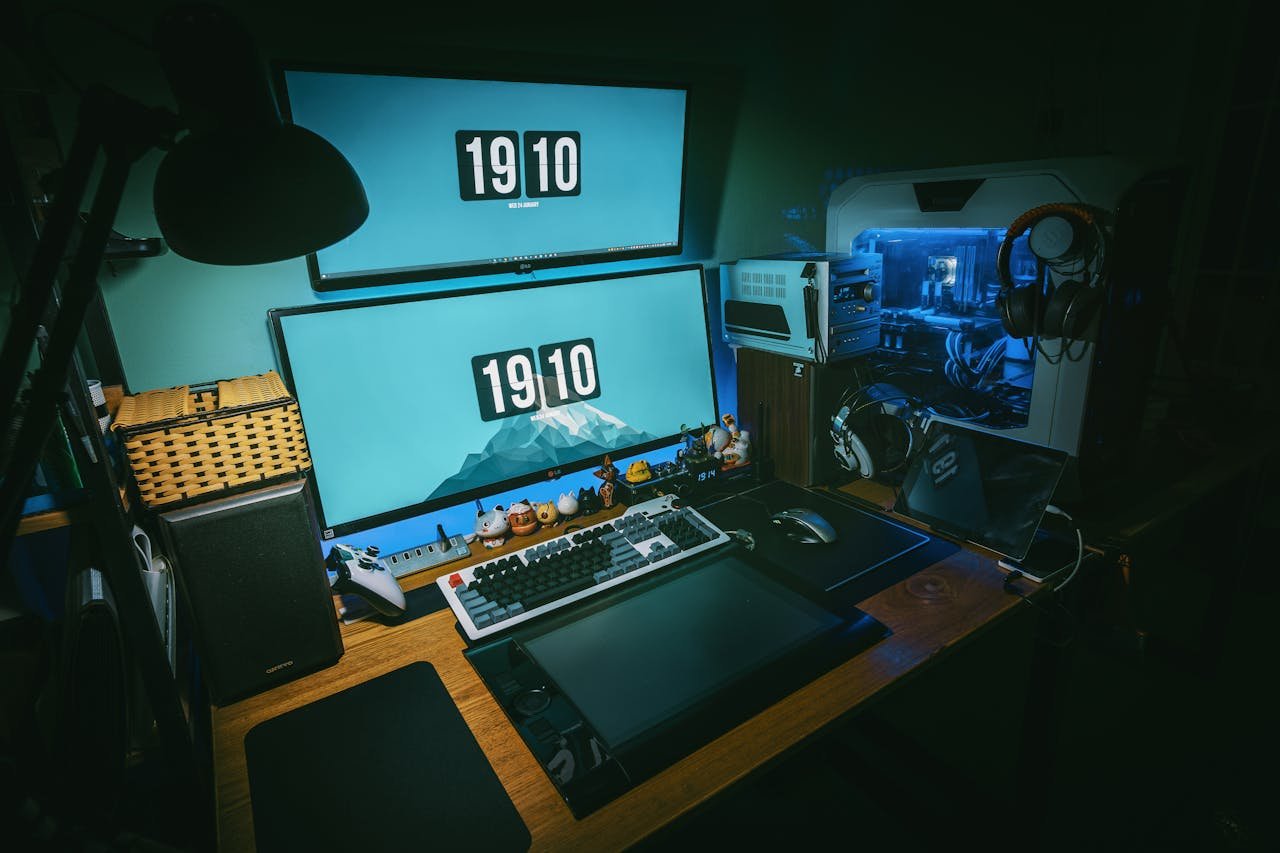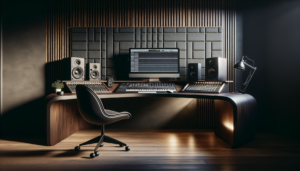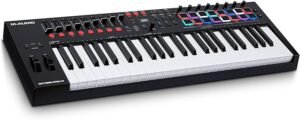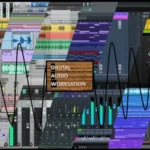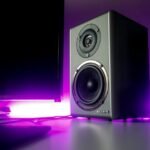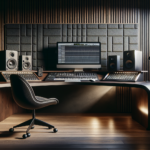Are you a music producer looking to take your craft to the next level? Do you want a powerful and reliable computer that can handle the demands of your music production projects? Look no further! In this article, we will find the best computer for music production in 2024. Whether you’re a beginner or a seasoned pro, having the right computer can make a world of difference in your music-making journey.
Why Your Computer Matters in Music Production
In today’s digital age, music production has become more accessible than ever before. With the rise of digital audio workstations (DAWs) and software plugins, you can create professional-quality music right from your home studio. However, not all computers are created equal when it comes to handling the complex tasks involved in music production.
A high-quality computer is essential for music production for several reasons. First and foremost, it provides the processing power necessary to run resource-intensive software and plugins smoothly. From recording and editing to mixing and mastering, every step of the music production process requires a computer that can handle the workload.
Secondly, a reliable computer ensures stability and consistency in your workflow. Imagine being in the middle of a recording session or a live performance and experiencing sudden crashes or audio glitches. A powerful computer with robust hardware components can minimize these technical hiccups, allowing you to focus on creating music without interruptions.
Lastly, a well-equipped computer future-proofs your music production setup. As technology advances and new software and plugins are released, you’ll want a computer that can keep up with the evolving demands of the industry. Investing in a high-quality computer now can save you from costly upgrades down the line.
Choosing the Best Computer for Music Production
When it comes to choosing the best computer for music production, several factors come into play. These include the CPU (Central Processing Unit), RAM (Random Access Memory), storage options, and the operating system. Let’s take a closer look at each of these components and how they impact your music production workflow.
CPU: The Brain of Your Music Production Setup
The CPU is the heart and brain of your computer, responsible for executing all the calculations and tasks required to run your music production software. For music production, you’ll want a CPU that offers excellent multitasking performance and low-latency audio processing.
In the world of CPUs, two giants dominate the market: Intel and AMD. Both offer powerful processors suitable for music production. Intel’s Core series and AMD’s Ryzen series are popular choices among music producers.
Intel Core processors have a long-standing reputation for their reliability and performance. They excel in single-threaded tasks, making them ideal for running single-core plugins and software. On the other hand, AMD Ryzen processors are known for their multi-threaded performance, making them a great choice for multithreading-enabled DAWs and plugins.
Ultimately, the choice between Intel and AMD comes down to personal preference and specific requirements. Both options can deliver excellent performance in music production tasks. It’s essential to consider your workflow, the software you use, and any specific recommendations from plugin manufacturers when making your decision.
RAM: Keeping Your Music Projects Running Smoothly
RAM plays a crucial role in music production by storing temporary data and allowing your computer to access it quickly. When working on music projects with multiple tracks, high-quality samples, and virtual instruments, you’ll want sufficient RAM to ensure smooth playback and efficient processing.
For most music production tasks, 16 GB to 32 GB of RAM is recommended. This amount of RAM allows you to handle complex projects without experiencing significant slowdowns or audio dropouts. However, if you frequently work with orchestral libraries or other resource-intensive plugins, you may benefit from having even more RAM.
Additionally, it’s worth noting the importance of RAM speed. Higher-speed RAM can enhance the performance of your computer, particularly when using memory-intensive plugins or virtual instruments. If your budget allows, consider opting for faster RAM modules to maximize your music production capabilities.
Storage: Saving Your Music Projects
Storage is another critical aspect to consider when choosing a computer for music production. Traditional hard disk drives (HDDs) have been the standard for many years, offering large storage capacities at affordable prices. However, solid-state drives (SSDs) have become increasingly popular due to their faster read and write speeds.
For music production, having a fast and reliable storage solution is essential. SSDs provide faster loading times for your DAW and plugins, allowing for smoother workflow and reduced latency. They also offer faster file transfers, making it quicker to save and load your music projects.
When it comes to choosing between HDDs and SSDs, consider striking a balance between capacity and speed. A combination of a smaller SSD for your operating system, DAW, and frequently used plugins, along with a larger HDD for storing your music projects and sample libraries, can provide the best of both worlds.
Operating System: Windows or macOS?
The choice of operating system (OS) is often a matter of personal preference and familiarity. The two main options for music production are Windows and macOS.
Windows-based computers offer a wide range of hardware options and compatibility with various software and plugins. They are generally more affordable and provide more flexibility for customization. Windows also has a larger user base, which means a wealth of online resources and community support.
On the other hand, macOS is known for its seamless integration with Apple’s hardware and software ecosystem. Mac computers are renowned for their stability, reliability, and user-friendly interface. Many music producers prefer macOS for its optimized performance with popular DAWs like Logic Pro X and its robust collection of built-in audio tools.
When choosing between Windows and macOS, consider your existing software and hardware setup, your budget, and your familiarity with each operating system. Ultimately, both options can deliver excellent results in music production, so it comes down to personal preference and specific requirements.
The Best Computer for Music Production in 2024
Now that we’ve covered the essential components to consider when choosing a computer for music production let’s dive into our top picks for 2024. These computers have been carefully selected based on their performance, reliability, and value for money. Whether you’re a beginner or a professional, there’s a computer on this list that can meet your music production needs.
Best Value: Dell XPS 8960
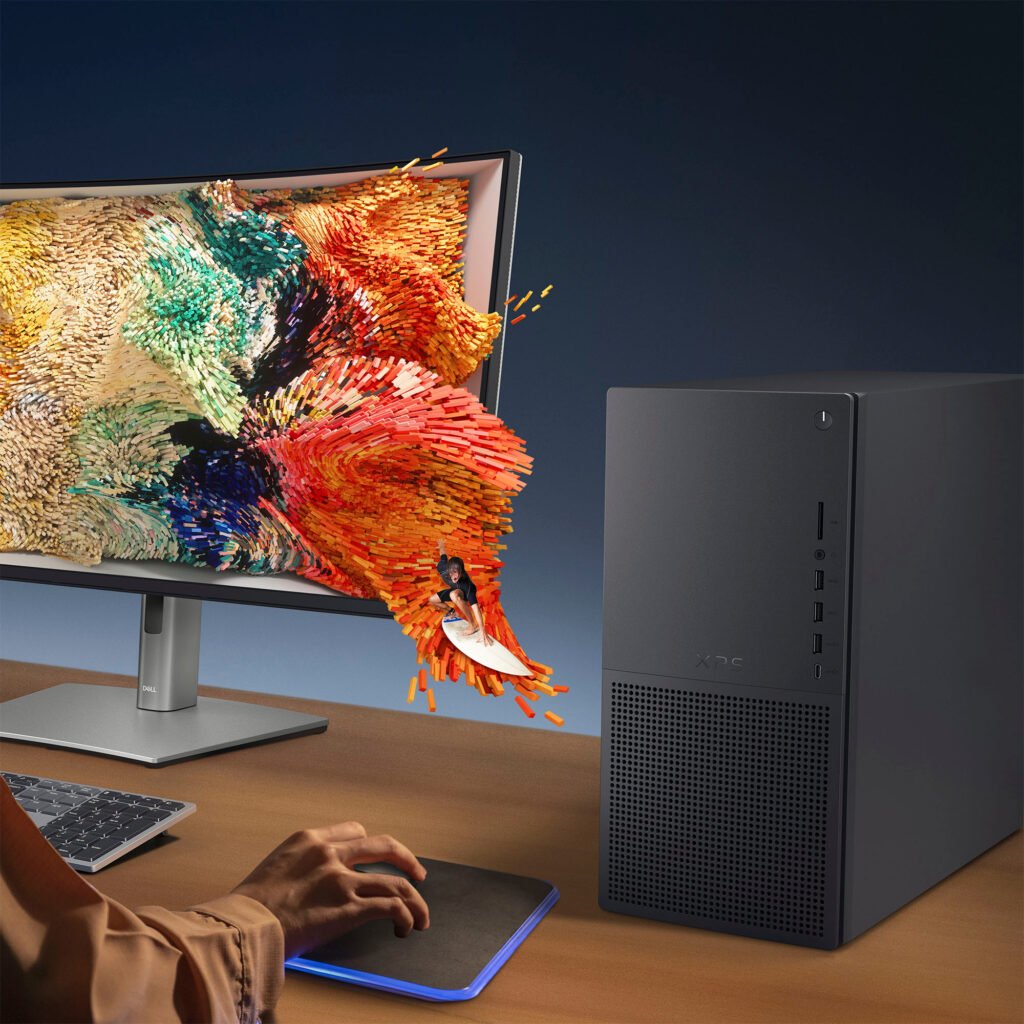
The Dell XPS 8960 is an excellent choice for music producers who want great performance without breaking the bank. With a range of 13th generation Intel Core processors, up to 64 GB of DDR5 memory, and up to 2 TB of fast M.2 PCIe NVMe SSD storage, the XPS 8960 can handle the most CPU-intensive music production tasks with ease.
One of the standout features of the Dell XPS 8960 is its wide range of port selections, including USB slots (Type-A and Type-C) and HDMI and DisplayPort connections. This makes it easy to connect professional audio interfaces, MIDI controllers, and multiple displays for an efficient and versatile music production setup.
The Dell XPS 8960 is easily upgradable, allowing you to prolong the life of your machine for years. Whether you’re a beginner looking to upgrade your current setup or a professional in need of a reliable workhorse, the Dell XPS 8960 offers excellent value for money.
Best Budget: Lenovo ThinkCentre M75q
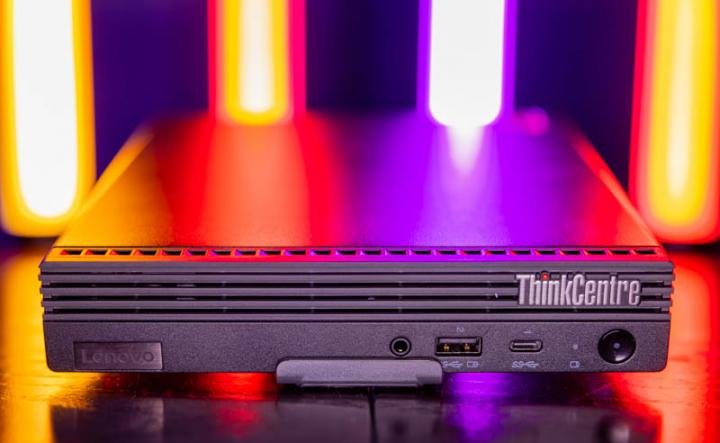
If you’re on a tight budget or have limited space in your studio, the Lenovo ThinkCentre M75q is a fantastic option. Despite its compact size, this desktop computer packs a punch with its six-core AMD Ryzen 5 Pro CPU, up to 32 GB of DDR4 RAM, and up to 1 TB of NVMe SSD storage.
The ThinkCentre M75q is fully customizable, allowing you to configure it according to your specific requirements. It offers ample connectivity options for audio interfaces and MIDI controllers, making it a solid choice for music production tasks. While it may not handle the most demanding mixing projects, it provides excellent performance for its price.
For music producers on a budget or those with limited space, the Lenovo ThinkCentre M75q offers a powerful and reliable solution that won’t break the bank.
Best Mac: Apple Mac Studio
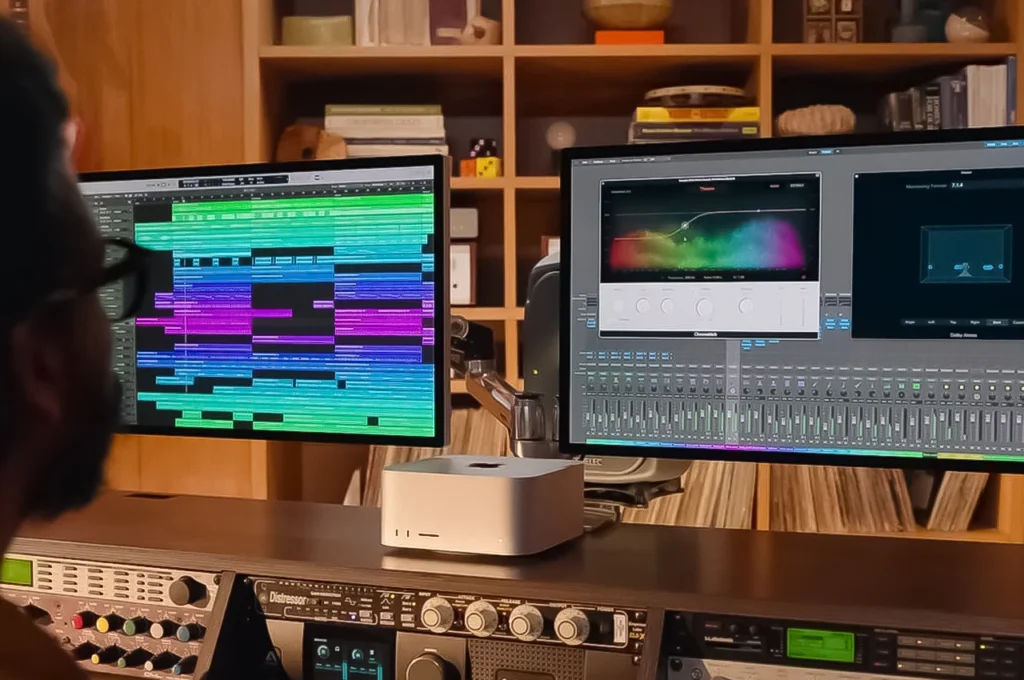
Apple’s Mac Studio needs no introduction. With its immense power and seamless compatibility with Apple software, it can be an invaluable companion for all content creators, including music producers. The Mac Studio features the highly performing Apple M2 CPU system, which can handle the most demanding plugins and tasks with ease.
The Mac Studio is available in various configurations, with RAM options ranging from 32 GB to an impressive 192 GB (with the M2 Ultra chip). Even at the standard 32 GB, the Mac Studio is a phenomenal machine that can bring to life complex compositions and handle resource-intensive music projects.
While the Mac Studio is not upgradable, it provides excellent value for money for macOS users. If you’re looking for a future-proof solution and are willing to invest in Apple’s technology, the Mac Studio delivers unparalleled performance.
Best All-in-One: HP Pavilion 27 All-In-One
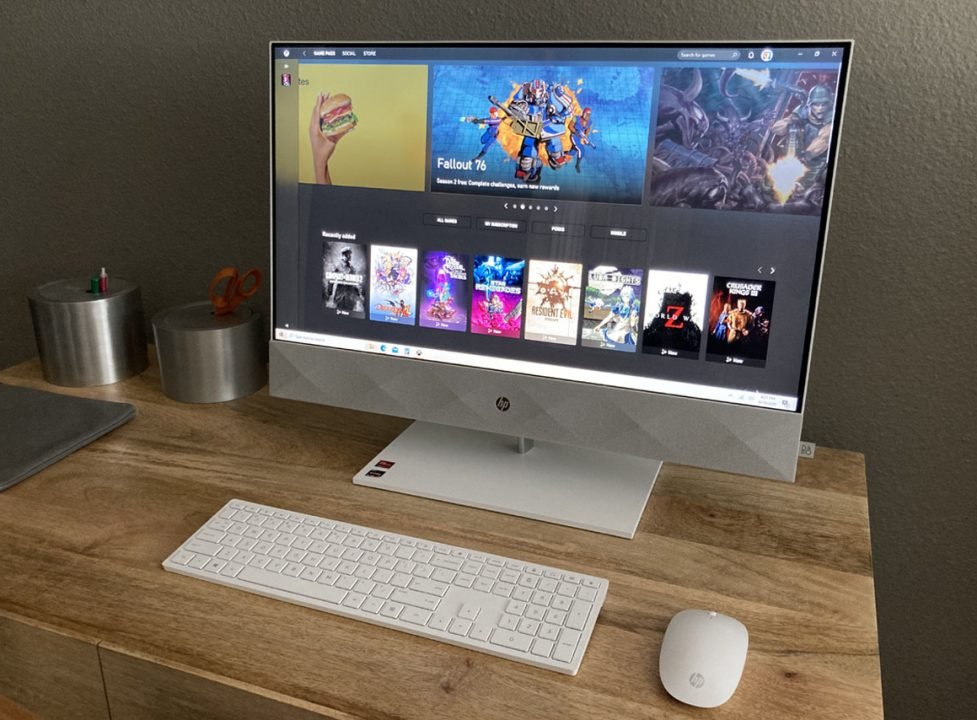
The HP Pavilion 27 All-In-One is an elegant and powerful desktop computer that offers great value for money. It features a range of AMD Ryzen or Intel Core processors, up to 16 GB of DDR4 RAM, and up to 1 TB of storage.
One of the standout features of the Pavilion 27 All-In-One is its touchscreen option, which allows for precise control and scaling of elements in your mix. It also provides ample USB ports for connecting multiple MIDI devices and offers a 1 TB SSD option for faster access to larger sample libraries and project files.
While the HP Pavilion 27 All-In-One may not offer as much room for customization as a traditional desktop tower, it provides excellent performance for its price. If you’re looking for an all-in-one solution that combines elegance, power, and affordability, the HP Pavilion 27 All-In-One is a fantastic choice.
Best High-End: Apple Mac Pro
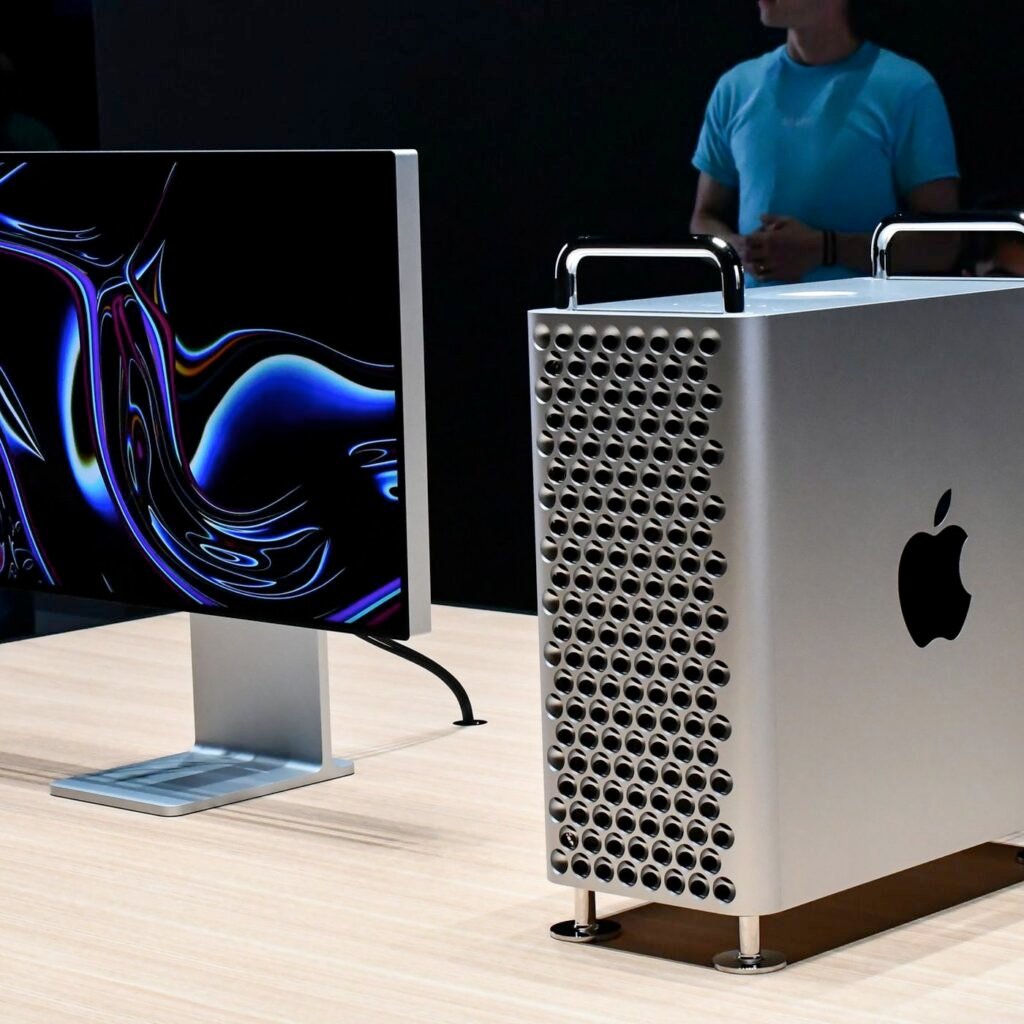
For the most demanding music producers and professionals, the Apple Mac Pro is the pinnacle of desktop computers. With its powerful Apple M2 CPU, up to 192 GB of RAM, and up to 8 TB of storage, the Mac Pro is a beast of a machine.
The Mac Pro is designed for professionals who require extreme processing power, such as animators and video producers. While its advanced graphic features may be overkill for music production, the Mac Pro’s performance capabilities are undoubtedly impressive.
It’s worth noting that the Mac Pro is significantly more expensive than other options on this list, with a starting price of $6,999. A fully upgraded Mac Pro can reach well above the $10,000 mark. It’s a phenomenal machine that can serve you for years, even a decade, without needing major hardware upgrades.
Pre-Built or Custom-Built: Which Option Is Right for You?
When it comes to acquiring a computer for music production, you have two main options: pre-built or custom-built. Each option has its advantages and considerations, so it’s important to weigh them before making a decision.
Pre-Built Computers: Immediate Performance and Support
Pre-built computers offer the convenience of immediate performance right out of the box. They come with all the necessary hardware components pre-installed and configured, allowing you to start making music without the hassle of building a computer from scratch.
One of the significant advantages of pre-built computers is that they typically come with a manufacturer’s warranty, providing peace of mind in case of any hardware issues. Additionally, pre-built computers are designed to be stable and reliable, as they have undergone rigorous testing and quality control.
However, pre-built computers may have limitations when it comes to customization and upgradability. The hardware components are often proprietary, making it challenging to swap out individual parts. This can limit your ability to adapt your computer to changing needs or take advantage of the latest technologies.
Custom-Built Computers: Tailored to Your Music Production Needs
Custom-built computers offer the flexibility to choose each component based on your specific requirements. This level of customization allows you to prioritize the components that matter most to you, such as CPU performance, RAM capacity, or storage options.
Building a custom computer also provides the opportunity for future upgrades. As technology advances and your music production needs evolve, you can easily swap out individual components to keep your computer up to date. This can be a cost-effective way to prolong the life of your setup without needing to replace the entire machine.
However, building a custom computer requires technical knowledge or assistance from a knowledgeable professional. Troubleshooting any issues that arise with a custom-built computer also falls on your shoulders. If you’re not comfortable with these aspects or prefer a hassle-free experience, a pre-built computer may be the better option for you.
Final Thoughts: Unleash Your Creative Potential
Choosing the best computer for music production is a crucial step in unleashing your creative potential. With the right hardware and software, you can create professional-quality music that captivates audiences and brings your artistic vision to life.
Whether you opt for a pre-built computer or decide to build a custom setup, consider the CPU, RAM, storage, and operating system that best suit your music production needs. Think about your workflow, the software you use, and any specific recommendations from plugin manufacturers.
In this article, we’ve highlighted our top picks for the best computers for music production in 2024. From the affordable Dell XPS 8960 to the powerful Apple Mac Pro, there’s a computer on this list for every budget and level of expertise.
Remember, the computer is just a tool. It’s your creativity, passion, and dedication that will truly make your music stand out. So, let your imagination soar, and let the best computer for music production be your trusted companion on this incredible musical journey. Good luck, and may your music touch the hearts of many! Check out our guide to the best laptops here !
This post may contain affiliate links. If you make a purchase through these links, we may earn a small commission at no additional cost to you.

